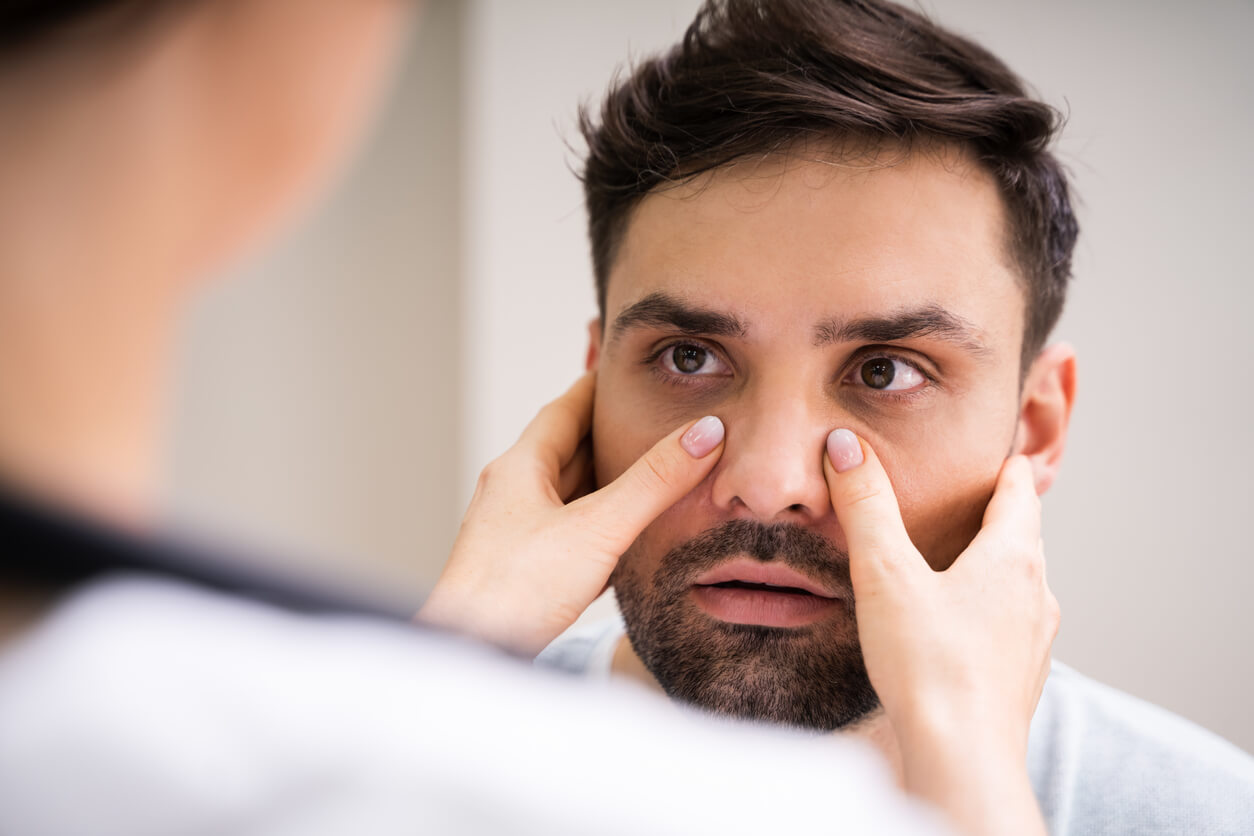Best Antibiotics for Sinus Infection
Antibiotic treatment options for bacterial sinus infections
Key takeaways:
- Bacterial sinus infections require antibiotic treatment, whereas viral infections often go away on their own
- Amoxicillin is the most commonly used antibiotic for bacterial sinus infections
- Home remedies like a Neti pot can soothe symptoms while you heal
Viruses cause most sinus infections and will go away on their own. However, in some rare cases, bacteria can cause a sinus infection. Bacterial sinus infections require prescription medication for treatment. In this article, we’ll look at your best antibiotic treatment options and the right treatment for you.
What is a sinus infection?
A sinus infection—known as sinusitis or rhinosinusitis—is an infection of the sinuses. 90% of acute sinus infections—acute sinusitis—are caused by a viral infection. An allergic reaction may also cause them. Most cases of acute sinusitis will go away within 7-10 days. In fact, 70% of sinus infections will go away on their own without antibiotics.
Chronic sinusitis is a persistent inflammation of the sinuses. These infections either occur frequently or last longer than 10 days. Chronic infections may be caused by:
- Bacterial infections
- Fungal infections
- A compromised immune system
- Nasal polyps
- Cystic fibrosis
- Tumors in the nose
A healthcare provider may prescribe antibiotics if they suspect that your chronic sinus infection is being caused by a bacterial infection.
How do I know if I have a sinus infection?
Common symptoms of a sinus infection include:
- Nasal congestion/ stuffy nose
- Runny nose (nasal discharge)
- Facial pain
- Sinus pain
- Headaches
- Toothaches
- Upper jaw pain
- Bad breath
- Decreased sense of smell
- Sore throat
- Fever
More severe symptoms include:
- Intense headaches
- High fever
- Vision changes
- Neck stiffness
- Swelling in the face or forehead
What is a bacterial sinus infection?
Harmful bacteria cause bacterial sinus infections (bacterial sinusitis). When the sinus cavities are blocked or congested, bacteria can breed in built-up mucus. This bacteria then spreads and infects the surrounding sinus cavities.
How do I know if I have a viral or bacterial sinus infection?
If you have had a sinus infection for over ten days, you likely have a bacterial sinus infection. A bacterial infection requires antimicrobial—specifically, antibiotic—treatment to eliminate the infection.
When do I need antibiotics for a sinus infection?
Bacterial infections need antibiotics to kill harmful pathogens and stop their spread. On the other hand, most viral sinus infections will go away on their own after a week or so.
Do not use antibiotics to treat viral infectious diseases. Misuse of antibiotic medication can lead to serious side effects and antibiotic resistance. Certain bacteria carry a gene that makes them resistant to antibiotic medicines. Overuse of antibiotics can make this gene active. This can lead to the invasive bacteria becoming immune to antibiotics.
What are the best antibiotics for sinus infections?
Prescribing providers turn to antibiotic use to treat bacterial sinus infections.
The most best antibiotics for bacterial sinus infections are:
Amoxicillin: Amoxicillin, is a broad-spectrum penicillin-like drug. It eliminates bacteria and prevents their spread to other body parts.
Amoxicillin-clavulanate (Augmentin): This combination antibiotic is used to treat infections caused by bacteria that are resistant to treatment with amoxicillin alone. Clavulanate helps prevent bacteria from destroying amoxicillin.
If a patient is allergic to penicillin, a provider may use other antibiotics.
Alternative antibiotic options include:
- Cephalosporins (like cefdinir or cefuroxime)
- Lincosamides (like clindamycin)
- Tetracyclines (like doxycycline)
- Combination drugs (like trimethoprim-sulfamethoxazole)
- Fluoroquinolones (like levofloxacin or moxifloxacin)
Fluoroquinolone antibiotics are considered a last-resort treatment option for sinus infections due to their risk of side effects.
Should I use a Z-pack for sinus infections?
Z-Packs are a 5-day course of antibiotic treatment containing the drug azithromycin. Azithromycin is used to treat many bacterial infections, including sexually transmitted diseases (like chlamydia and gonorrhea) and upper respiratory infections like bronchitis and pneumonia.
Z-Packs are not recommended for sinus infections, as azithromycin induces antibiotic resistance. According to the CDC, 1 out of 3 antibiotic prescriptions written by doctors isn’t even necessary for treatment. Prescribing antibiotics when unnecessary can cause antibiotic resistance and even more severe side effects. Because of this, clinical practice guidelines recommend amoxicillin use over the use of Z-Packs and azithromycin as a treatment for bacterial sinus infections.
Can I treat a sinus infection without a prescription?
Since most sinus infections are caused by a virus, they will usually go away on their own. You can use several over-the-counter medications and home remedies to soothe symptoms.
OTC Medication
These drugs are widely available at pharmacies and medical supply retailers. Standard over-the-counter treatment options include:
Saline nasal spray: Over-the-counter saline nasal sprays (like Sinex) clean the nasal passages, which can ease symptoms.
Steroid nasal sprays: Corticosteroid nasal sprays containing can help reduce inflammation caused by sinus infections.
Decongestants: Decongestants like Sudafed clear up the mucus blockage in the nasal passages. You should only use a nasal decongestant for a few days, as repeated use can cause more serious congestion.
OTC Pain Relievers: Pain relievers such as ibuprofen and acetaminophen can help minimize body aches, sinus pain, and fever symptoms.
Antihistamines: Allergy medication helps reduce your body’s reaction to allergens, irritants, and pollutants.
Home remedies
Home remedies can be used to reduce symptoms of a viral or bacterial infection.
At-home remedies include:
Neti Pots: Neti Pots are used for nasal irrigation. This saltwater rinse helps reduce congestion and pain caused by a sinus infection. It can also clean the nasal cavity.
Moisten sinus cavities: Drape a towel over your head and breathe in the vapor from a bowl of hot water. This helps moisturize the nose, drain mucus, and relieve sinus infection symptoms. You can also take a hot shower and inhale the warm, wet air. At night, use a humidifier with filtered water.
Warm compress: A warm compress applied to your nose and forehead may help alleviate sinus congestion.









